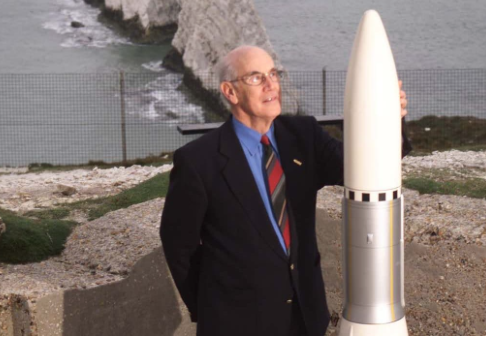Britain’s only rocket to successfully launch a satellite into orbit is to finally go on display 48 years after it crashed into the Australian desert.
The Black Arrow was launched in 1971 from the Isle of Wight, delivering the Prospero satellite, but the programme was shut down soon after, with the money diverted to build Concorde.

Rocket scientist Ray Wheeler with a scale model of the Black Arrow rocket
Now space technology firm Skyrora has brought the rocket home and is to display it in Penicuik, Midlothian where the company is based.
The rocket casing came down in Southern Australia where it was damaged by weather and vandalism. A plaque will also be placed where Black Arrow had lain.
Daniel Smith, director at Skyrora, said: “This is quite feasibly the most important artefact linked to the UK's space history.
“While our engineers have been working on our own launches, our STEM ambassadors have been arranging all of this in the background.
“We'll be unveiling it in Penicuik later this month, not far from our headquarters and workshop in Edinburgh.
“With the UK Government aiming to make us a launch nation again, it seemed like the perfect time to bring Black Arrow back.
“We really hope the rocket will help to inspire current and future generations of scientists and engineers.”
The UK Space Agency has previously announced £2.5 million of funding for a vertical launch spaceport in Sutherland and Skyrora successfully completed its inaugural sub-orbital test launch north of the border last year.
Dr Graham Turnock, chief executive of the UK Space Agency, said: "Black Arrow is testament to Britain's long standing heritage in the space sector which continues to thrive today.
"The Government's Spaceflight Programme includes a series of education and outreach activities which I hope will play a major role in inspiring the next generation of space scientists, engineers and entrepreneurs."
By Sarah Knapton, Telegraph

